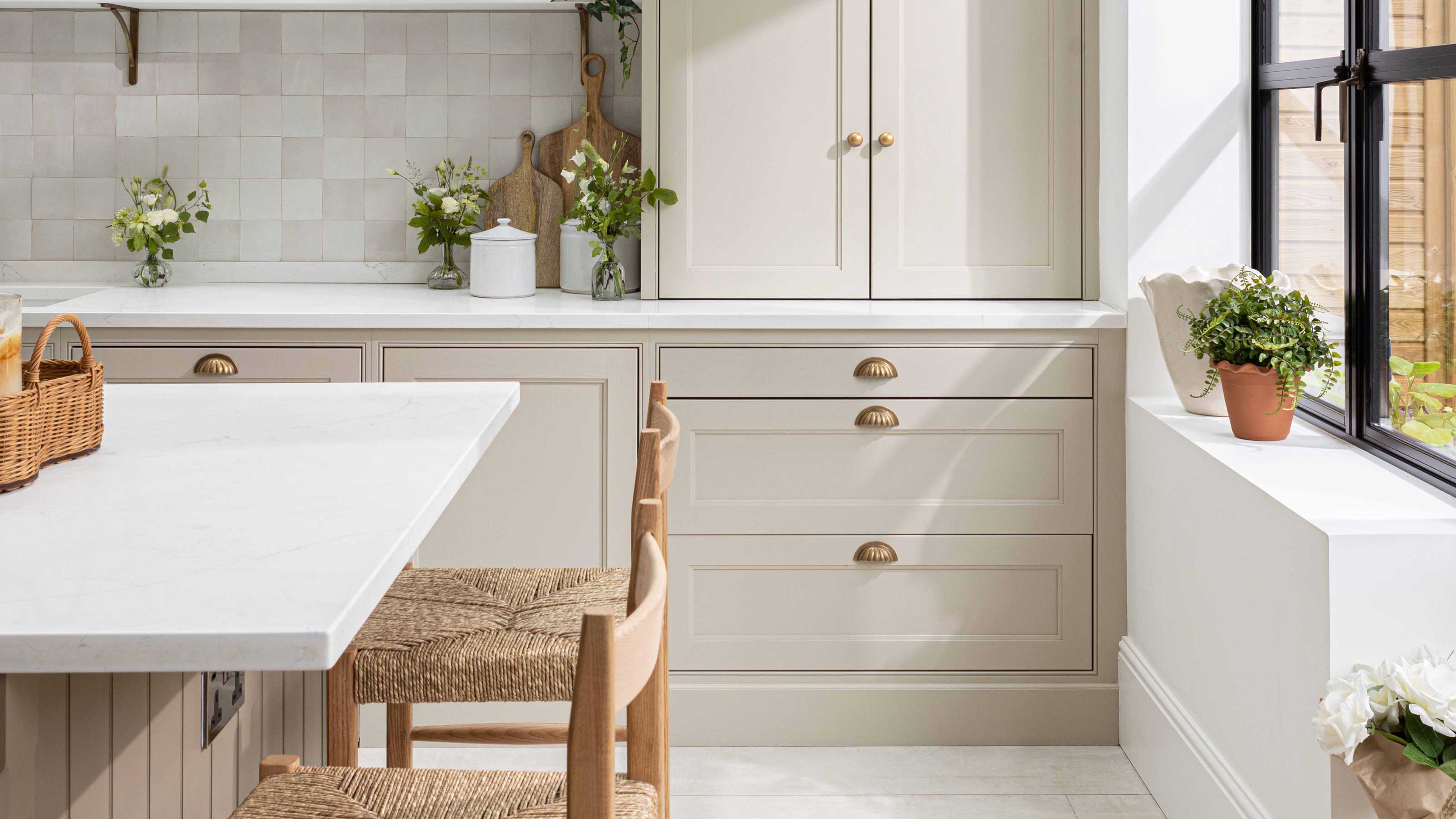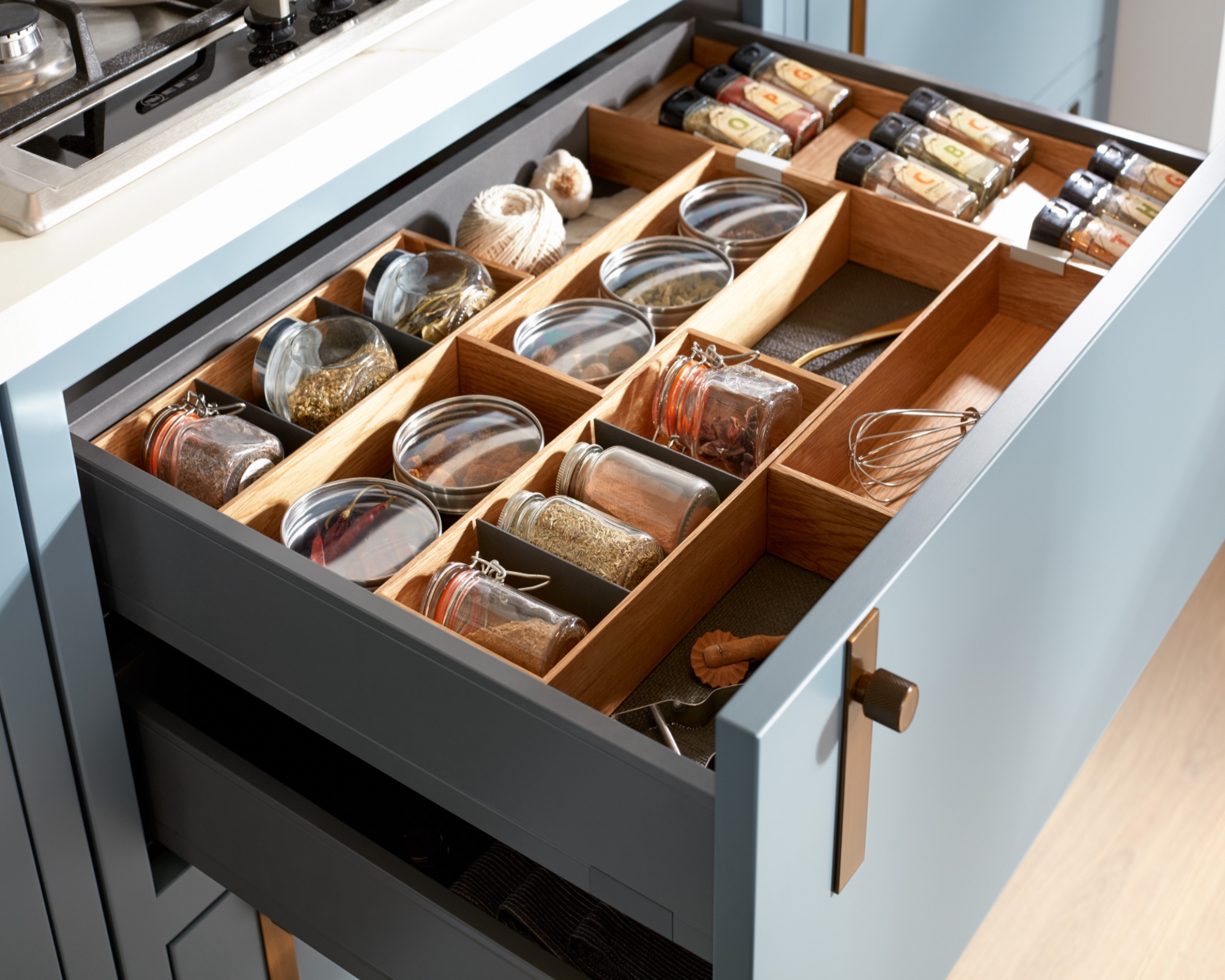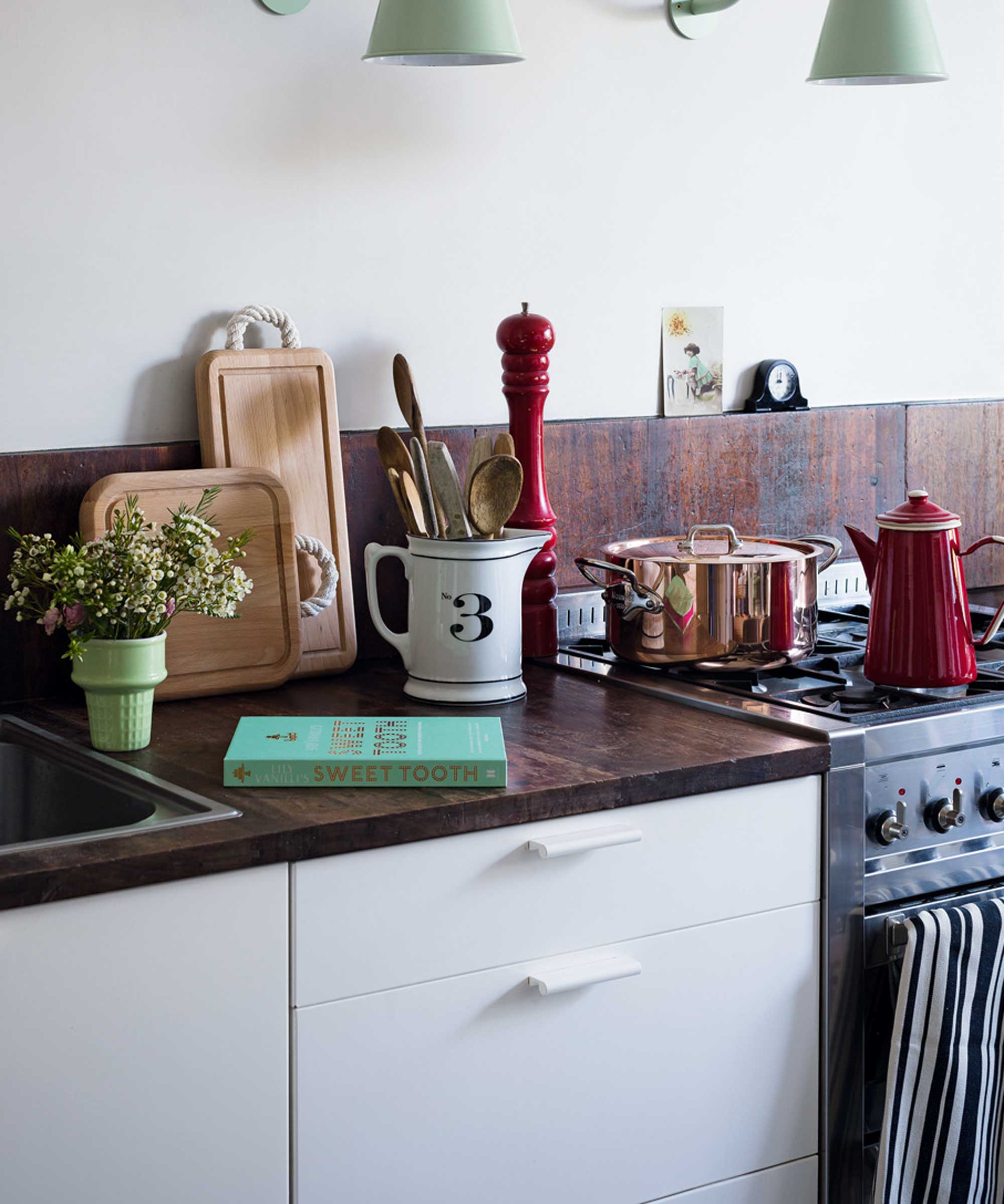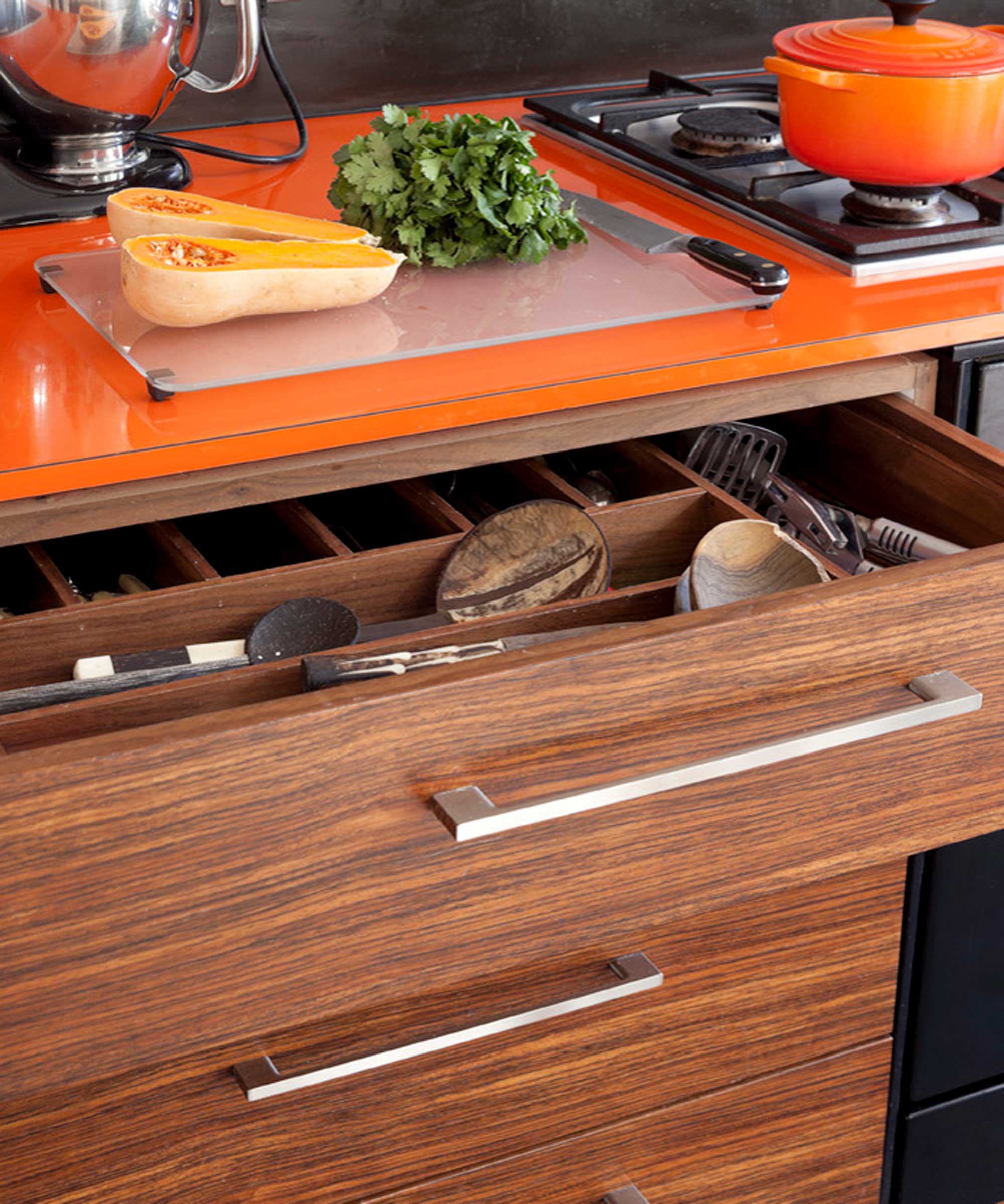
The drawers in your kitchen are an essential storage space and the way you choose to lay them out contributes to how effectively your kitchen will run day to day.
When it comes to organizing kitchen drawers, we all have a unique way that works best for us. The layout of anyone's kitchen always differs, and that is what makes it our own.
However, there are certain items that should never appear in your kitchen drawers, these are important to take into consideration when you next organize your kitchen.
Experts share their advice on what you shouldn’t be storing in your kitchen drawers
We have gathered professional advice on what you should not be including in your kitchen drawers, and why these items are better kept elsewhere.

1. Sharp knives
Sharp knives stored inside a drawer can be dangerous, especially if they are stored with other things and you are constantly rummaging around in the drawer trying to find what you need.
Storing sharp knives in a kitchen drawer is an accident waiting to happen, says professional organizer Rachel Sicherman. It is a much better idea to store your best kitchen knives and other items that may have a blade in another part of the kitchen.
A great place to store sharp knives is in a knife block on the kitchen counter. This universal knife block from Amazon works great for keeping all your dangerous knives confined to one space and it works with any kind of knife you own. If you would prefer to keep them in the drawer, a bamboo in-drawer knife organizer, at Amazon will keep them corralled.
2. Heavy cookware

The kitchen drawers may seem like the perfect place to put all of your heavy pots and pans. While we do agree that it is essential to be able to grab a pan instantly while cooking, this may not be as great a place as you once thought.
Dawn Falcone, an organizing expert, says that storing pots and pans in a kitchen drawer can damage the mechanism of the drawer. It can especially damage the drawer's glides and create huge pressure on the inside causing the drawer to lose its structure and dip in the middle.
Instead, you should keep heavy cookware in lower cabinets or shelves that are specifically designed to support their weight.
3. Loose batteries
It is important that you do not store batteries inside your kitchen drawers as batteries can leak over time, causing damage to the drawer's interior.
Also if the batteries leak, they can cause damage to the other items in the drawer potentially rendering them unusable. Store batteries in a sealed battery storage case, at The Container Store, or a dedicated storage area away from food and utensils.
4. Raw food and perishables

‘Kitchen drawers are not suitable for storing raw foods or perishable items as they lack proper ventilation and temperature control,’ explains professional organizer Di Ter Avest.
Raw meat or poultry stored in drawers can lead to cross-contamination with other utensils or kitchen items. Always store raw food in a sealed container in the refrigerator. If you need to thaw frozen meat, do so in the fridge, a cold water bath, or a microwave, not in a kitchen drawer.
Kitchen drawers are not designed to be airtight or temperature-controlled, making them unsuitable for storing perishable items like dairy products, fresh produce, or cooked leftovers. These items should be kept in the refrigerator to prevent spoilage and the growth of harmful bacteria.
FAQs
What is the best way to use your kitchen drawers?
Your kitchen drawers should not be piled high or to their capacity just because they have extra room for additional items. Try and avoid the temptation to overcrowd your kitchen drawers, instead keep minimal items in there leaving space for the items you use more regularly.
Kitchen drawers are not ideal places to store medications, either due to temperature fluctuations and humidity that can affect their efficacy. Remember to always consider the specific layout and conditions of your kitchen when deciding where to store items for seamless cooking.







